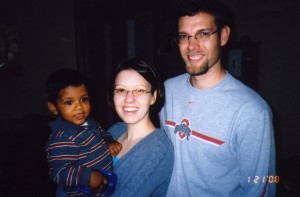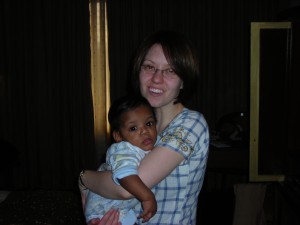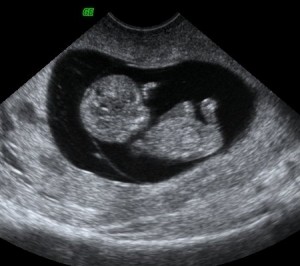 So far this year we’ve discussed what it means to share the Gospel with others and where to begin. This month we’re going to talk about explaining His Plan of Salvation.
So far this year we’ve discussed what it means to share the Gospel with others and where to begin. This month we’re going to talk about explaining His Plan of Salvation.
God’s Plan of Salvation: How can I explain it?
In this article, we will consider a simple, scriptural, and concise way to explain to another God’s plan of salvation. Salvation is a gift, but it’s a gift we must choose to accept in order to become part of God’s kingdom (Acts 2:38).
Consider the following three points:
1. The Problem: Sin
The greatest problem confronting mankind is not economic, educational, cultural, racial, social, or physical. The greatest problem confronting humanity is the problem of sin.
Sin causes man to be separated from God (lost!): Isaiah 59:1–2
Sin causes one to be spiritually dead: Ephesians 2:1–2; Romans 6:23
Sin is a universal malady because all have sinned: Romans 3:9-10; Ecclesiastes 7:20; Romans 6:23
Sin causes man to be lost in this life and lost eternally. It is a terrible malady, a deadly disease, an awful affliction!
2. The Remedy: The Blood of Christ
Sin is the problem: that’s the bad news. But there is a remedy for the problem of sin; there is a cure for the disease: that’s the good news.
The remedy for sin is the blood of Christ!
Jesus said in Matthew 26:28, “For this is my blood of the new testament, which is shed for many for the remission of sins.”
 It is the blood of Christ that provides us forgiveness: Romans 5:8; Ephesians 1:7; Colossians 1:14; 1 Peter 1:18–19; Revelation 1:5.
It is the blood of Christ that provides us forgiveness: Romans 5:8; Ephesians 1:7; Colossians 1:14; 1 Peter 1:18–19; Revelation 1:5.
The word “gospel,” which means “good news,” is that Christ died for our sins (1 Corinthians 15:1–4).
3. The Response: Obeying Christ
Having identified the problem (sin) and the remedy (Christ’s blood), the question remains, “How does one get the remedy?”
The answer is simple: we must obey Jesus Christ. The Bible tells us that Jesus is the author of eternal salvation to all who obey Him (Hebrews 5:8–9).
Jesus commands we believe in Who He is (John 8:24), repent (Luke 13:3), confess our faith in Him (Matthew 10:32), accepting His invitation of salvation, and be baptized (Mark 16:16). He further tells us to remain faithful (Revelation 2:10).
An Illustration:
Suppose a man went to a doctor for a check-up. The doctor found a deadly disease that could take the man’s life. That’s bad news. But the doctor tells the man there’s a medicine that can cure his disease. That’s good news! Then the doctor instructs the man to take the prescription. Would the man hesitate taking the remedy if he was thoroughly convinced it would alleviate his affliction?
Likewise man must learn of and acknowledge his problem; he must come to know that sin is the deadly disease confronting us all. But he needs also to learn that through Christ there is a remedy, and he needs to learn what that remedy is.
Conclusion:
Think of these three points (problem, remedy, response), learn the Scriptures that relate to each of these points and demonstrate their truthfulness, and then be about the business of telling people the good news of the gospel and God’s desire for them to be forgiven and have eternal life.
Emphasize to people how much God loves them and what a great gift He has given them (John 3:16). Share with them God’s great desire for them to receive this great gift. Everything necessary for our salvation on God’s part had been done; now it is up to us to accept by faith the gift of God.
Scriptures for further study: Luke 19:10; 1 Timothy 2:5; Romans 10:17; Hebrews 11:6; Acts 3:19; Galatians 3:26–27; 1 Peter 3:21.
By John Brown
 I started attending church a few months ago and want to become a Christian. But I’m afraid that God won’t accept me. I’ve done some really bad stuff, not just the usual things. My Christian friends tell me He will accept anybody but I’m not sure about me. Also, what if I can’t live up to His expectations for me? I don’t think I’d make a very good Christian. Do you know if he would accept me and what would happen if I do mess up?
I started attending church a few months ago and want to become a Christian. But I’m afraid that God won’t accept me. I’ve done some really bad stuff, not just the usual things. My Christian friends tell me He will accept anybody but I’m not sure about me. Also, what if I can’t live up to His expectations for me? I don’t think I’d make a very good Christian. Do you know if he would accept me and what would happen if I do mess up? We cannot know God unless we know His word, so we should
We cannot know God unless we know His word, so we should  God has blessed everyone with great potential. He has designed us all with the abilities and desires necessary to accomplish the works He wants us to do
God has blessed everyone with great potential. He has designed us all with the abilities and desires necessary to accomplish the works He wants us to do  For example, in those verses, it is written, “Love is never jealous.” Being envious is often a temptation for many people. Sometimes girls feel like they don’t want their boyfriends to even talk to other girls, or vice versa. If that is something you struggle with then you have to decide not to allow yourself to fall into Satan’s trap. You must let your love overshadow sinful feelings and trust the one you are with. In those verses you will find that everything love is being described as is an action. You choose not to be easily angered, not to be prideful, not to rejoice in sin, and to be kind. They all require thought and decisions. Therefore, when you decide to put yourself out there and love someone, you are making a choice.
For example, in those verses, it is written, “Love is never jealous.” Being envious is often a temptation for many people. Sometimes girls feel like they don’t want their boyfriends to even talk to other girls, or vice versa. If that is something you struggle with then you have to decide not to allow yourself to fall into Satan’s trap. You must let your love overshadow sinful feelings and trust the one you are with. In those verses you will find that everything love is being described as is an action. You choose not to be easily angered, not to be prideful, not to rejoice in sin, and to be kind. They all require thought and decisions. Therefore, when you decide to put yourself out there and love someone, you are making a choice. Many of us want to live up to the potential God has for us, but sometimes it’s difficult to accept the different plans that God has for others, especially within our families. God has created each of us specifically and has given us all unique talents. Although we should be loving and encouraging within our families, displaying Christ-likeness, there is unfortunately too often resentment and competition. Our sinful human nature makes us competitive people, but that is not God’s ideal for us. Romans 12:15 reminds us to share in each others’ successes, stating, “Rejoice with those who rejoice.”
Many of us want to live up to the potential God has for us, but sometimes it’s difficult to accept the different plans that God has for others, especially within our families. God has created each of us specifically and has given us all unique talents. Although we should be loving and encouraging within our families, displaying Christ-likeness, there is unfortunately too often resentment and competition. Our sinful human nature makes us competitive people, but that is not God’s ideal for us. Romans 12:15 reminds us to share in each others’ successes, stating, “Rejoice with those who rejoice.” Pray that God will reveal to you His plan for you––and listen! Unfortunately, we are often so focused on others’ talents and lives that we ignore God’s voice speaking to us about our own. And not only is this the case in our physical families but also in our spiritual families. How often have we been consumed with jealousy that a sister in Christ seems to have everything going for her? Or bitter that a brother in Christ got the scholarship we wanted? We need to pray that God will work on our hearts to help us refocus.
Pray that God will reveal to you His plan for you––and listen! Unfortunately, we are often so focused on others’ talents and lives that we ignore God’s voice speaking to us about our own. And not only is this the case in our physical families but also in our spiritual families. How often have we been consumed with jealousy that a sister in Christ seems to have everything going for her? Or bitter that a brother in Christ got the scholarship we wanted? We need to pray that God will work on our hearts to help us refocus. As winter melts into spring, there are many different ways to change up your exercise routine. After months of keeping fit indoors, why not head outside and enjoy the beauty of spring? Spring is a time of renewal, rebirth, and rejuvenation. “Create in me a clean heart, O God, and renew a steadfast spirit within me” (Psalm 51:10 NKJV). Take this time to add new things to your current exercise routine. If you have been putting off your New Year’s resolution to begin exercising, allow the freshness of spring and the beauty of God’s creation to motivate you (after speaking with your doctor, of course).
As winter melts into spring, there are many different ways to change up your exercise routine. After months of keeping fit indoors, why not head outside and enjoy the beauty of spring? Spring is a time of renewal, rebirth, and rejuvenation. “Create in me a clean heart, O God, and renew a steadfast spirit within me” (Psalm 51:10 NKJV). Take this time to add new things to your current exercise routine. If you have been putting off your New Year’s resolution to begin exercising, allow the freshness of spring and the beauty of God’s creation to motivate you (after speaking with your doctor, of course). Runners, and walkers, instead of using a treadmill, go outside and run or walk around your neighborhood. Running 5 mph (a 12-minute mile) burns around 472 calories per hour, while walking at a moderate pace (3 mph) will burn 207 calories per hour. If you do not live in a neighborhood with sidewalks, try mapping out a few paths through town. You can take many routes to keep the scenery different. There are also nature trails and city and national parks. You know your area; just do a little research to pick out the best and safest spot for you. Make sure someone knows your route, do not go into bad areas, stay alert, keep your cell phone with you, and stay in areas that have plenty of other people nearby. Being outside can offer your body something different. Hills add an element of difficulty if you are used to running or walking on a flat surface. As your endurance improves, pick routes with more hills and increase the length of time or distance that you go.
Runners, and walkers, instead of using a treadmill, go outside and run or walk around your neighborhood. Running 5 mph (a 12-minute mile) burns around 472 calories per hour, while walking at a moderate pace (3 mph) will burn 207 calories per hour. If you do not live in a neighborhood with sidewalks, try mapping out a few paths through town. You can take many routes to keep the scenery different. There are also nature trails and city and national parks. You know your area; just do a little research to pick out the best and safest spot for you. Make sure someone knows your route, do not go into bad areas, stay alert, keep your cell phone with you, and stay in areas that have plenty of other people nearby. Being outside can offer your body something different. Hills add an element of difficulty if you are used to running or walking on a flat surface. As your endurance improves, pick routes with more hills and increase the length of time or distance that you go. Apples taste great, are easily portable, and are ready to eat. They also have many health benefits. Apples are an excellent source of vitamin C and fiber, which can improve bowel health, lower cholesterol, and reduce the risk of heart disease, cancer, strokes, and diabetes.
Apples taste great, are easily portable, and are ready to eat. They also have many health benefits. Apples are an excellent source of vitamin C and fiber, which can improve bowel health, lower cholesterol, and reduce the risk of heart disease, cancer, strokes, and diabetes.
 I believe there is another thing that is equally important to consider when donating your old dresses, and this is modesty. Maybe you don’t have any immodest dresses in your closet, and so this isn’t an issue. But many people will be donating dresses that are questionable. Many dresses can be altered to be more modest, and while this isn’t your responsibility when hosting a
I believe there is another thing that is equally important to consider when donating your old dresses, and this is modesty. Maybe you don’t have any immodest dresses in your closet, and so this isn’t an issue. But many people will be donating dresses that are questionable. Many dresses can be altered to be more modest, and while this isn’t your responsibility when hosting a  This month’s giveaway is featured at the bottom of this article. Keep reading for details.
This month’s giveaway is featured at the bottom of this article. Keep reading for details.  Joshua Harris doesn’t allow room for excuses in his book––sin is sin, and lust, in any form, is still lust. He talks about impurity issues that guys and girls deal with, and he doesn’t give an easy out––as one doesn’t exist––but he does give practical suggestions about how to overcome all forms of lust. Not Even a Hint also discusses God’s plan for sex, and we’re told what lust isn’t.
Joshua Harris doesn’t allow room for excuses in his book––sin is sin, and lust, in any form, is still lust. He talks about impurity issues that guys and girls deal with, and he doesn’t give an easy out––as one doesn’t exist––but he does give practical suggestions about how to overcome all forms of lust. Not Even a Hint also discusses God’s plan for sex, and we’re told what lust isn’t. So far we have covered the
So far we have covered the  There are millions of personal testimonies online written by women who have had an abortion,
There are millions of personal testimonies online written by women who have had an abortion,  Webster defines potential as “the inherent ability or capacity for growth, development, or coming into being.” Jeremiah 29:11 describes it this way: “For I know the plans I have for you, says the Lord, plans to prosper you and not to harm you, plans to give you hope and a future.”
Webster defines potential as “the inherent ability or capacity for growth, development, or coming into being.” Jeremiah 29:11 describes it this way: “For I know the plans I have for you, says the Lord, plans to prosper you and not to harm you, plans to give you hope and a future.” He had indeed given me great potential. I just needed to allow Him to help me reach it. I had to release my control over my life and take a leap of faith. I had to say, “Yes, God, I will follow your plan for my life, regardless of where it leads me.” I had to be willing to let go of my dreams, of what I had determined my potential was, and allow God to fulfill the plan He had for me.
He had indeed given me great potential. I just needed to allow Him to help me reach it. I had to release my control over my life and take a leap of faith. I had to say, “Yes, God, I will follow your plan for my life, regardless of where it leads me.” I had to be willing to let go of my dreams, of what I had determined my potential was, and allow God to fulfill the plan He had for me. As I look back over my life, I can see God’s hand in shaping me for adoptive motherhood. I see how He created me for this. How different my life would be had I not listened and allowed God to help me reach my potential—His potential for my life. What joy I would be missing had I stubbornly clung to the dreams and aspirations I had for myself. I would never know the deep satisfaction I have every night holding my precious son as he prepares for bed.
As I look back over my life, I can see God’s hand in shaping me for adoptive motherhood. I see how He created me for this. How different my life would be had I not listened and allowed God to help me reach my potential—His potential for my life. What joy I would be missing had I stubbornly clung to the dreams and aspirations I had for myself. I would never know the deep satisfaction I have every night holding my precious son as he prepares for bed.


Recent Comments